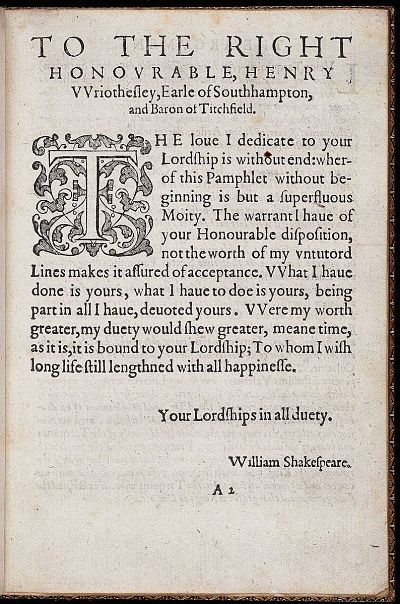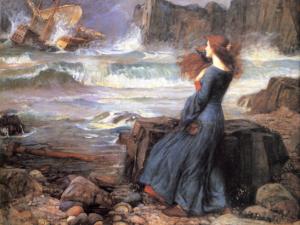 Deliver us from evil the Lord’s prayer says, but often we rush to evil. Tragic to watch, worse to live through, many of us run to the sin that will destroy. This is bad enough, but the harm done to others is the greater evil. Pity Hamlet if you must, but Ophelia is the victim and deserves our sorrow.
Deliver us from evil the Lord’s prayer says, but often we rush to evil. Tragic to watch, worse to live through, many of us run to the sin that will destroy. This is bad enough, but the harm done to others is the greater evil. Pity Hamlet if you must, but Ophelia is the victim and deserves our sorrow.
God save Hamlet, but God reward and redeem blessed Ophelia.
Victim blaming kills. Justice demands deeds not words. Doubt it? Read Shakespeare. Whatever the cause of our problems today, it is not classical Christian culture. . . Christianity took a culture amused by violence (read Ovid) and made violence not acceptable.
We can understand sin, but we needn’t excuse it. For the victim, there is no sin and ultimate justice in God’s heaven. Before there was Ophelia, there was Lucrece and the crime committed against her was the theme of Shakespeare’s second publication.
Honor and beauty in the owner’s arms
Are weakly fortressed from a world of harms.
No sin is the result of love, but of envy, hate, and jealousy. The danger of being a good person in a twisted age is plain: “this earthly saint adored by this devil, little suspecteth the false worshiper, for unstained thoughts do seldom dream on evil.”
Good folk think and so cannot see that evil men have a different “cost-benefit” analysis. They will sell God’s eternal happiness, for false desires. God help us: “. . . who sells eternity to gain a toy.”
And of course, we all do this more or less, but Shakespeare is right. There can be no false equivalence. So powerful is evil in the moment it springs forth where we did not expect it, that we might lose hope. How can good people survive? They are wolves and we are sheep. Shakespeare rouses us: “Violent vanities never last.”\
The wolves hide, but the shepherds can and should be roused when they are found. When the flock is under attack, God’s shepherds must act with love, mercy, and justice. Meanwhile, we are reminded that there is so much we can do. We focus on our twisted desires endlessly when the same energy might be turned to doing justice and bringing hope. If power can be used for evil, the same power can do good
We have so many opportunities:
When will though be the humble suppliant’s friend,
And bring him where his suit may be obtained?
When wilt though sort an hour great strifes to end,
Or free that soul which wretchedness hath chained,
Give physic to the sick, ease to the pained?
The poor, lame, blind, halt, creep, cry out for thee,
But they ne’er meet with opportunity.
At the end when we stand before justice, we all pray: “Lord Jesus Christ, son of God, have mercy on me a sinner.” We do not just do evil, we have failed to do the good He gave us the ability to do. A nation needs leaders that can do good, because if we tolerate evil leaders, then evil acts will multiply. Shame is greater when shame comes from our leaders and the results are very bad. “For princes are the glass, the school, the book, where subjects’ eyes do learn, do read, do look.”
An entire nation can be corrupted when the shepherds refuse to care for the nation and instead use their power to harm. Again, there is hope. The sin rests on the sinner, not anyone else: “Let guiltless souls be freed from guiltless woe.” If we will rouse ourselves and never blame the victim, or each other, but do justice, then the good can triumph. While heaven cannot come, we can hold off making this life more of a hell.
Lucrece calls for no more words, but justice:
Knights, by their oaths,
should right poor ladies’ harms.
Brutus heard her and roused his soul to act for justice and so slew an ignoble king and created a republic. This republic would last for hundreds of years until a later generation ceased to care about virtue. They took to victim blaming: “those poor plebs deserve their poverty.” They were filled with murder and rapine. Nobody acted for justice, though Rome like Lucrece cried out for it in her violated streets.
And so a Republic died.
But this is not just politics as abstract ideas. Behind every failed state there are thousands of hurting souls harmed by bad ideas, tyrants in the home, tyrants in the schools, tyrants in the city. The violence of the state produces violence in the population and the evils done are to the innocent. The victims are never to blame, but the powerful try.
God have mercy and raise up some noble Americans.
——————————————–
William Shakespeare went to God four hundred years ago. To recollect his death, I am writing a personal reflection on a few of his plays. The Winter’s Tale started things off, followed by As You Like It. Romeo and Juliet still matter, Lady Macbeth rebukes the lust for power, and Henry V is a hero. Richard II shows us not to presume on the grace of God or rebel against authority too easily. Coriolanus reminds us that our leaders need integrity and humility. Our life can be joyful if we realize that it is, at best, A Comedy of Errors. Hamlet needs to know himself better and talks to himself less. He is stuck with himself so he had better make his peace with God quickly and should stay far away from Ophelia. Shakespeare gets something wrong in Merchant of Venice . . . though not as badly as some in the English Labour Party or in my Twitter feed. Love if blind, but intellectualism is blind and impotent in Love’s Labours Lost. Brutus kills Caesar, but is overshadowed by him in Julius Caesar. We should learn not to make Much Ado about Nothing. We might all be Antony, but if we would avoid his fate then we must avoid flattery and the superficial love of Troilus and Cressida. We are fools, but our goal should be to accept it and not to degenerate into Biblical fools during our Midsummer Night’s Dream. Richard III is a symptom of a bad leadership community, but be careful that use Measure for Measure to guide your reaction to the mess. The modern university is Iago in Othello playing on our sins to destroy the nation. You can’t accumulate your way to a great leader and personal piety in Henry VI (Part I) is not enough to make a great king. God will save the King, not our stupid partisan squabbles seen in Henry VI (Part 2) and not kingmakers as existed in Henry VI (Part 3). Fortunately, in God’s world All’s Well That Ends Well. Two Gentlemen remind me that being in love is grand. King John keeps winning and so loses. Slander always gives way to truth in Cymbeline. We need patrons, but God help us if we flatter them and lose them as Athens did with Timon of Athens. We need good leaders and not have to hope against reason that one turns out well like young Prince Hal in Henry IV Part One. Being powerful is all fun and games, until it isn’t as Henry learns in Henry IV Part Two. Virtue can be jolly and edgy, as The Merry Wives of Windsor show. We can all be shrews and need The Taming of the Shrew. Pericles did not live in a Zootopia, his world was more realistic. No revenge lest we end like Titus Andronicus. Shakespeare shows what the fusion of Christianity and classicism did for all of us in Venus and Adonis. It is hard to be delivered from evil, if we pursue it as did the evil man in The Rape of Lucrece.
















